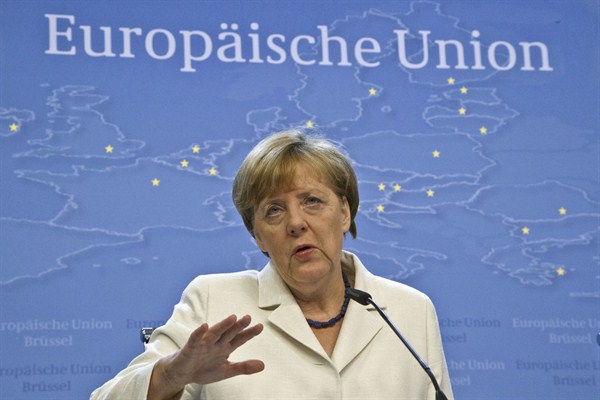Ever since the last-minute agreement reached last month to reopen negotiations for a third bailout for Greece, Germany has become the target of harsh criticism both in the European Union and the United States. The agreement, which set even harsher terms for reopening talks than what had been on offer before Athens called for a referendum it hoped would strengthen its bargaining position, has been characterized as a “German diktat,” with critics calling the German government vindictive, contemptuous and brutal.
Such criticism stands in stark contrast to perspectives in Berlin, where many policymakers regard the compromise found as a rather bad deal for both sides, and not as a German victory.
Now, as the actual negotiations for the third bailout terms continue in advance of yet another “final deadline” of Aug. 20, German Chancellor Angela Merkel continues to face contradictory pressures. On the one hand, European and international expectations of Germany’s role as a crisis manager and backstop for the eurozone are high. Its willingness to underwrite 27 percent of all European rescue packages to date, based on its relative economic weight in the eurozone, is seen as having been indispensable to holding the monetary union together.

